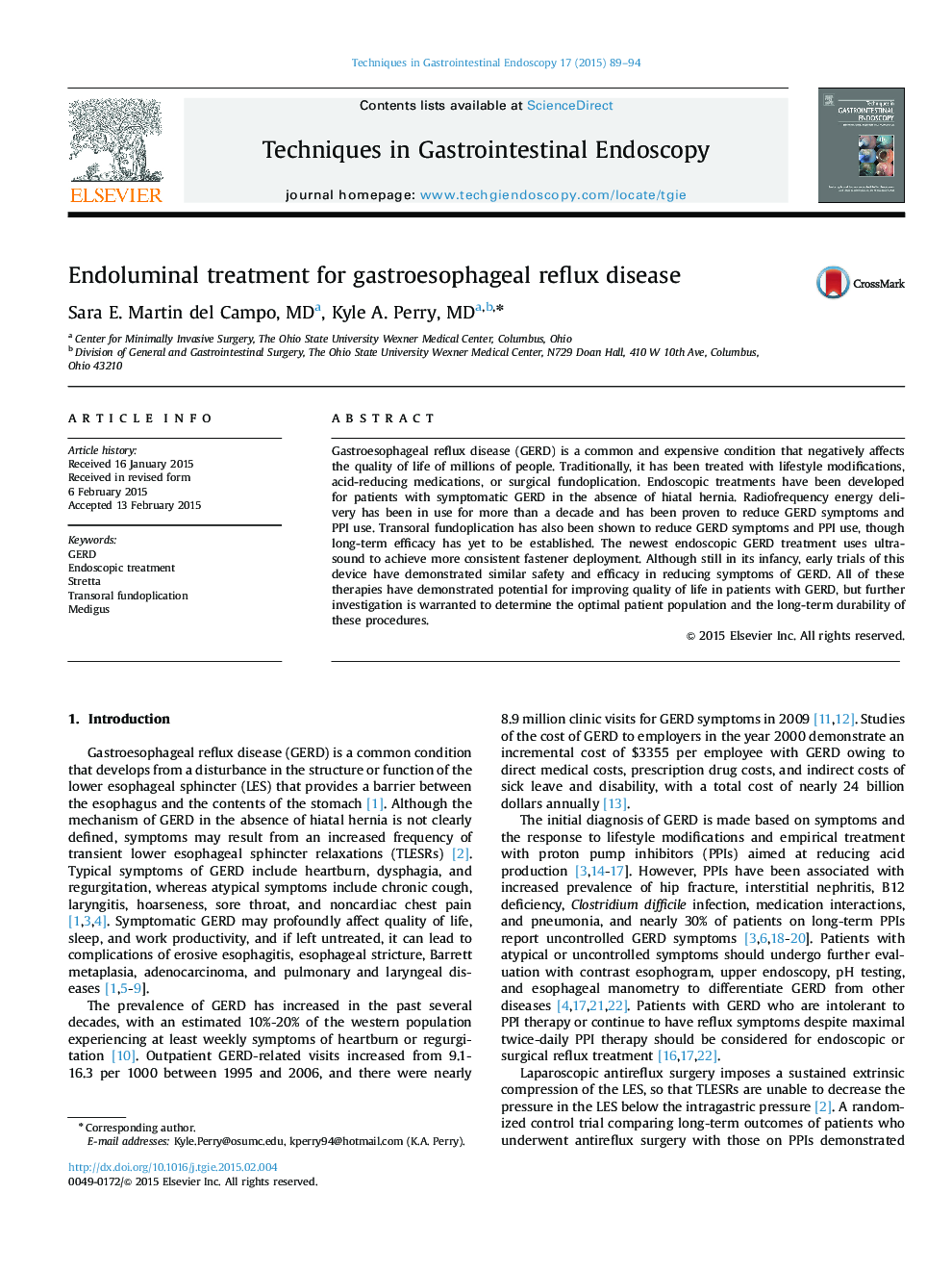| Article ID | Journal | Published Year | Pages | File Type |
|---|---|---|---|---|
| 3322414 | Techniques in Gastrointestinal Endoscopy | 2015 | 6 Pages |
Gastroesophageal reflux disease (GERD) is a common and expensive condition that negatively affects the quality of life of millions of people. Traditionally, it has been treated with lifestyle modifications, acid-reducing medications, or surgical fundoplication. Endoscopic treatments have been developed for patients with symptomatic GERD in the absence of hiatal hernia. Radiofrequency energy delivery has been in use for more than a decade and has been proven to reduce GERD symptoms and PPI use. Transoral fundoplication has also been shown to reduce GERD symptoms and PPI use, though long-term efficacy has yet to be established. The newest endoscopic GERD treatment uses ultrasound to achieve more consistent fastener deployment. Although still in its infancy, early trials of this device have demonstrated similar safety and efficacy in reducing symptoms of GERD. All of these therapies have demonstrated potential for improving quality of life in patients with GERD, but further investigation is warranted to determine the optimal patient population and the long-term durability of these procedures.
